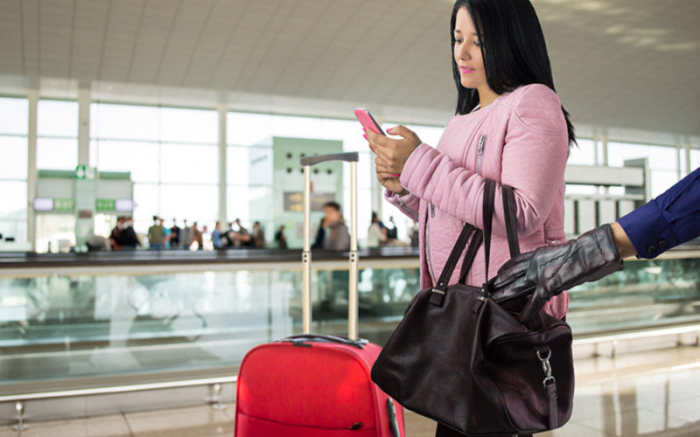Cherished pictures, sensitive messages, login data for online banking... These are all things we risk losing if we're not careful with our phones while traveling.
There's always an increased risk of having a phone stolen or leaving it somewhere when we're on a busy holiday trip. If you want to make sure your online life, bank account and photo collection remains safe while you travel, then you need to ask yourself these four questions.
1 - Is my screen lock on?
Most phones will activate this by default, but if your phone's screen somehow still unlocks without any password, then you're leaving yourself extremely exposed.
If you haven't turned it on yet, screen locks work similarly to the SIM lock when the smartphone is switched on, and you're asked for your PIN. Instead of a numerical code, a fingerprint scan or facial recognition can also be used on newer smartphones.
2 - Is my phone's operating system up-to-date?
It may not sound very relevant at first, but it's surprisingly important. The latest versions of Android or iOS usually include not only new functions but also important security updates, reducing the likelihood you'll be hacked while traveling.
Automatic updates can be activated in the app store, but because of the amount of data required to download them, you'll need wireless internet, not just mobile data.
3 - Do I have cloud backup?
Holiday photos, scans of travel documents, important notes: If you do lose your smartphone on holiday, then the first thing that will annoy you is all the personal data you've lost.
That won't be the case if you've subscribed to a cloud backup, which typically costs less than the price of a coffee every month.
Photos, videos, contacts and other data will then be backed up online using services like iCloud and Google Drive. This also saves the hassle of regularly connecting your phone to a computer to transfer all your photos.
4 - Is my phone encrypted?
Security experts say it also makes sense to encrypt your smartphone. That way, if a hacker does manage to get a hold of your phone, then your data will still be safe.
Newer operating systems automatically encrypt user data to protect emails, contacts, photos, downloads and login data. Older smartphones can be encrypted manually in the settings.
If you also have an SD card, then you should also check whether you have any sensitive data on this, and this it's encrypted. Otherwise, all a hacker will need to do is plug the SD card into their computer to see all your files.
While traveling, you should also be careful about what public wireless networks you connect to and avoid using sensitive applications such as mobile banking in cafes or airport networks, for example.
More about: #travel
















































